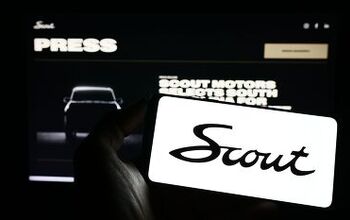GM Under Fire in Germany; Company Denies Installing 'Defeat Devices'

Volkswagen must be enjoying watching its rival squirm on the end of the same hook.
German regulators have singled out GM’s Opel division over carbon dioxide emissions from some of its vehicles, but the automaker says it isn’t in the wrong.
Facing accusations that it used a ‘defeat device’ to shut off emissions controls, Opel must now submit information to an investigating committee. During a meeting yesterday, Opel executives admitted that the popular Zafira model has software that shuts down exhaust treatment systems at high speeds and altitudes.
Every automaker does it, claimed Opel, but the country’s transport minister wasn’t buying it.
“The investigating committee has doubts about whether this practice is completely justified by the protection of the engine,” Alexander Dobrindt told media after the meeting.
A slew of European vehicles were tested using more accurate emissions-measuring equipment after Volkswagen’s diesel scandal put suspicion on all tailpipes. Of the 53 vehicles tested, only Volkswagens contained software that recognized when emissions tests were occurring.
Still, GM has 14 days to prove to German officials why it’s perfectly okay to shut down the Zafira’s emissions controls at certain times.
“I reiterate that our engines conform to the law and do not use illegal software,” Opel CEO Karl-Thomas Neumann stated after the meeting.
[Image: General Motors] [Sources: Wall Street Journal, Reuters]

More by Steph Willems


































Comments
Join the conversation
The article is confusing. Is GM accused of cheating on smog-related real pollution like maybe Carbon Monoxide and oxides of nitrogen or is GM accused of cheating on fuel economy/Carbon Dioxide? The output of Carbon Dioxide is the inherent result of clean combustion of fuel so cheating on this and fuel economy numbers would involve doings things to improve efficiency that can't be replicated on the product consumers can buy. Cheating on the real pollution products like oxides of nitrogen involve running pollution control systems more aggressively during the pollution test than they are road conditions. If manufacturers could simultaneously boost efficiency, lean air-fuel ratio for example, and meet the oxides of nitrogen pollution limit, there wouldn't be much reason not to use this test setup all the time.
If the emissions limits are going to be applied at any point during any circumstance of the engine being in operation (high altitude operation, extended full throttle acceleration, other situations where a lean A/F condition could cause damage to the engine, etc), then why does the EPA administer an elaborate, difficult-to-reproduce test procedure with narrow operating parameters to determine the vehicle emissions? My current understanding of most emissions rules are that the vehicle needs to pass the agency-determined test. The manufacturer doesn't need to go above and beyond in its engineering- there's no honors class or special sash at graduation- it just needs to pass the test. The entire US education system currently works this way... Are the manufactures actually breaking a rule or law? Did the EPA and industry do a poor job of writing the rules or they did they instrument an insufficient test procedure?
Currency War -> Trade War (US vs VW, Germany vs GM) -> World War
So first we learn VW/Porsche/Audi diesels turn off emissions controls when not being tested. Then IIRC we learn Mercedes-Benz diesels turn them off when it's under 50-odd degrees F "to protect the exhaust system". Then we learn Fiat diesels turn them off if it's under 63 degrees out--that'd be much of the year in much of Europe (why has that not been story on here, did I miss it? it's huge). Then we learn that Opel diesels turn them off for the opposite reason--higher temperatures. Problem limited mostly to Europe? Maybe not, because then we learn that GDI gasoline engines, promoted as eco-savior in the US for their MPGs, are actually filthy particulate factories. Maybe it's time to put the ICE on ice. I'd love to see a governor commit to putting fast-charge stations at every highway rest stop, and make their state a model for how to make the damn transition to EV power already.